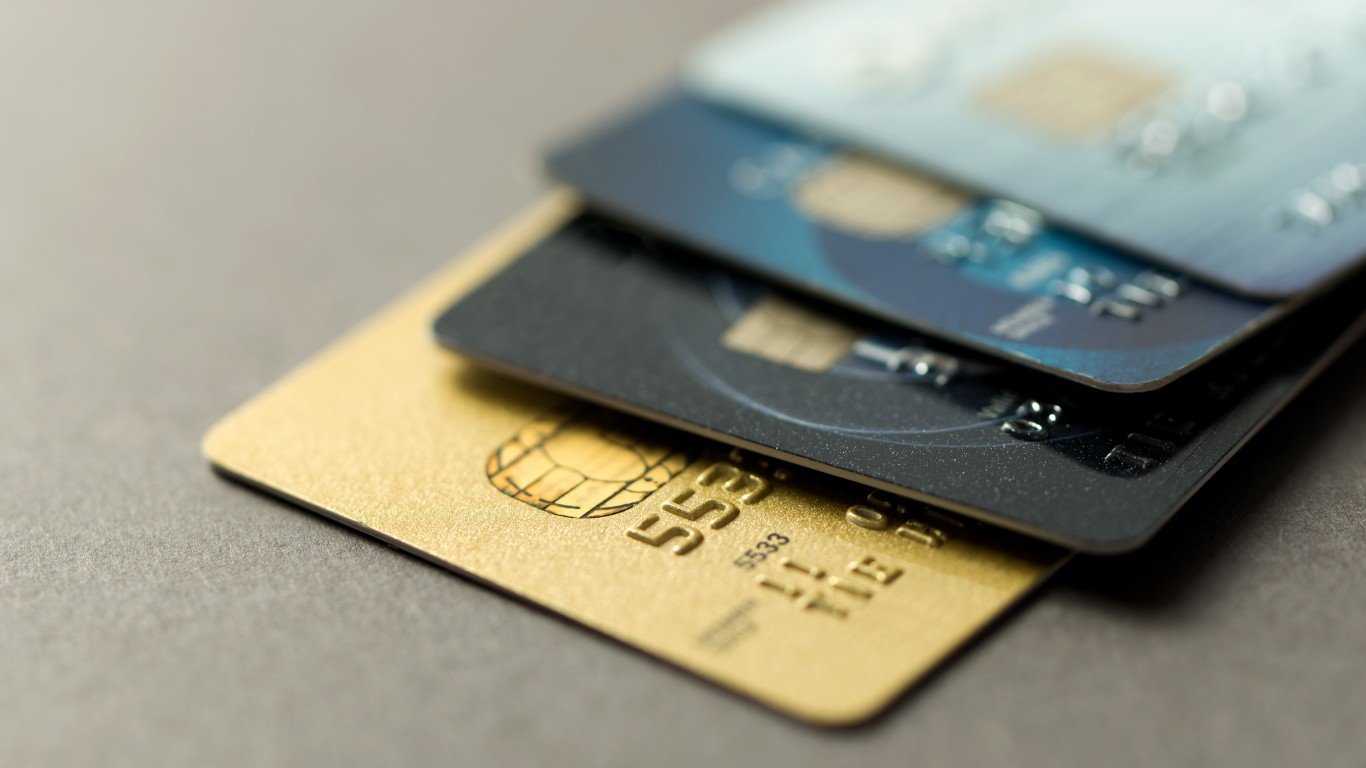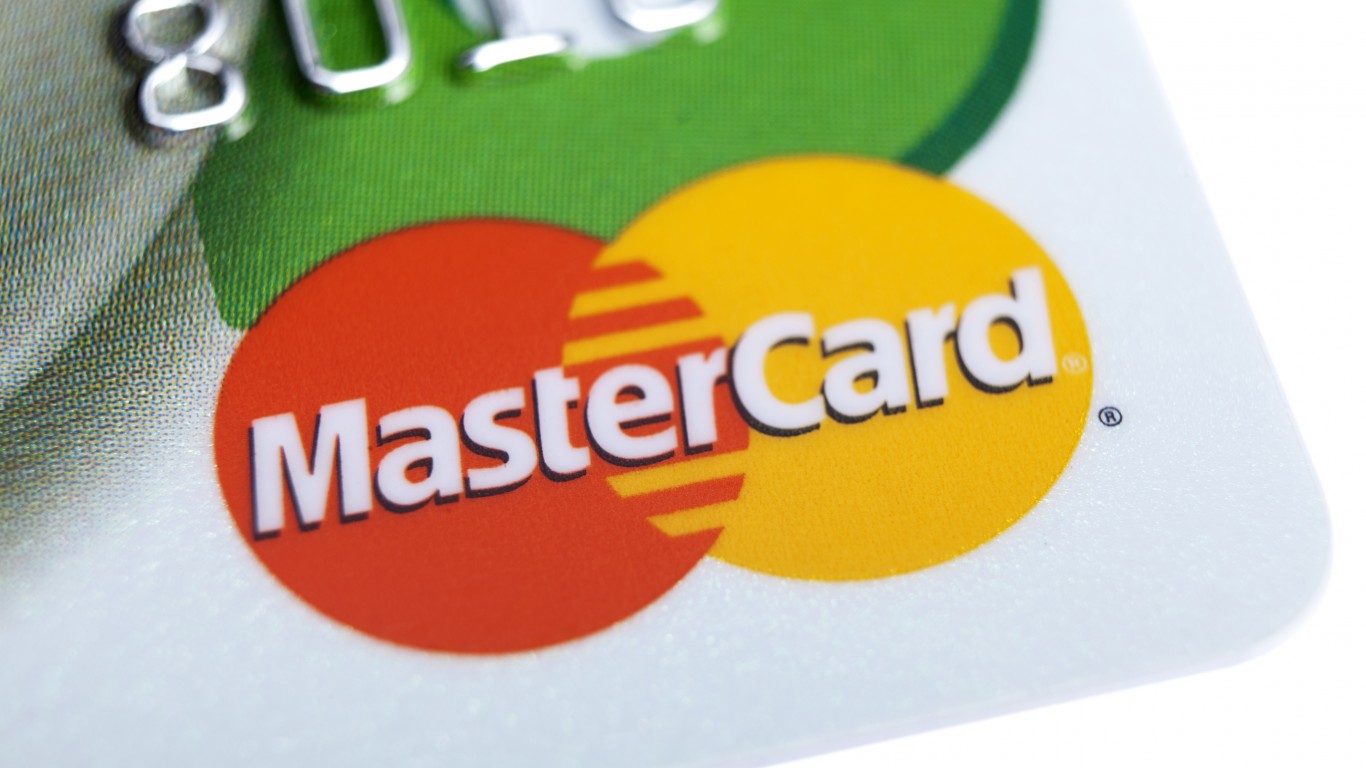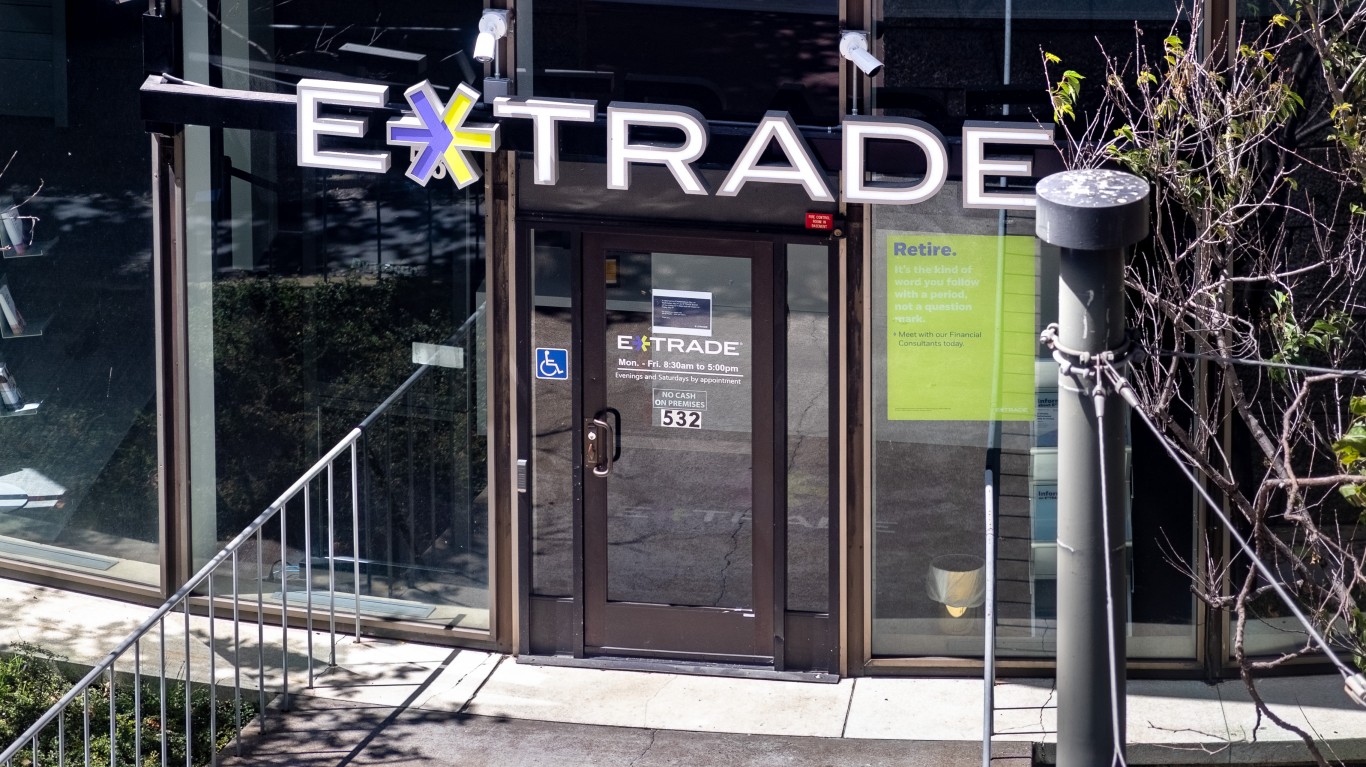

The economy was looking great at the start of 2020 with higher wages, low unemployment and a very healthy consumer. It took less than 60 days for the stock market to begin its slide and less than 75 days for the great economy to fall into the COVID-19 pandemic recession. With millions of Americans suddenly unemployed, there are serious housekeeping items in the personal finance bucket that need to be weighed by consumers right now before a bad situation gets even worse.
When times are hard, individuals often have to rely on available cash and whatever credit they have to stretch through each month. Recessions just bring hard times where personal income is far more likely to fall than rise at the same time that credit card balances tend to rise. Carrying higher credit card balances becomes even more costly to strapped consumers after adding on those 15% to 18% interest rates on credit card balances.
24/7 Wall St. has been looking into issues that were present in the Great Recession and the years after to see what consumers should expect at this time and in the coming weeks and months. Many younger adults did not have a credit card during the Great Recession, and those who did may not have experienced some of the pains from that time.
One common issue that was present for businesses and individuals alike was that the banks which issued credit cards or other forms of credit can suddenly lower the amount of available credit to many borrowers. Just when you might need your credit the most, it might not be available even without doing anything wrong. The same issue was seen for certain lines of credit to small businesses during the Great Recession as well.
The good news is that there are proactive steps that can be taken to minimize the impact down the road. And one serious consideration that the public needs to consider ahead is that creditors who are understanding, lenient and forgiving today might not be so kind as their own business pressures begin to affect their operations in a crashing economy.
According to creditcards.com, a report from early in April showed that 110 million people, or 59% of those who had credit cards, entered the recession with credit card debt. Some 56% of the people who already had credit card (that would be 61 million Americans) were already carrying that debt for over a year. And of the pool with debt, there were 27 who were carrying credit card debt for at least three straight year.
So what happens when major credit card issuers suddenly begin lowering credit limits on borrowers who are in need? The public better find out how to avoid this quickly. BankRate has sent out a note from creditcards.com signaling that major credit card issuers in the United States have already begun lowering consumer credit limits as the coronavirus pandemic impacts the economy. The rounds of banks reporting earnings have all indicated that delinquencies are rising and reserves for credit losses and loan losses are being raised.
Ted Rossman, the industry analyst at CreditCards.com, stated:
Most people don’t realize how much freedom credit card issuers have to cut limits or even cancel cards without warning. Looking back to the Great Recession as a guide, the October 2008 Fed Senior Loan Officer survey found 20% of card companies cut credit lines for customers with prime credit scores and 60% reduced lines for subprime cardholders. Banks are once again very nervous about the state of the economy and the job market and they’re pulling back on their risk exposure.
The good news within this bad news for consumers is that there are some ways to avoid or limit the impact of your credit card issuers from lowering customer credit limits. Credit can act as a “use it or lose it” scenario. That doesn’t mean you should hurry up to max-out on your credit card limits. In fact, blowing through your credit at the same time your income falls (or disappears) may come with much nastier consequences down the road in collections or in court.
One priority risk among consumers is dormant credit cards. This portion of consumer credit is among the top candidates for cancellation. Rossman’s recommendation is that if you haven’t used a card in a while, buying something small and paying it off right away can help to avoid or minimize that risk. He also noted that keeping cards open will help your credit score because it contributes to your credit utilization ratio that is used in evaluating your creditworthiness.
While using your credit is important, Rossman indicated that consumers might see their credit limits lowered (or even see their cards cancelled) if the card balances get close to the full credit limit. He said:
That may be unavoidable if you’re in a financial bind, but if you can, try to pay down your balance and gain some separation between your credit limit and how much you owe. This underscores why it’s dangerous to use your credit card as your emergency fund, because that credit line could be pulled out from under you. If you’ve having trouble, let your card company know and there’s a good chance they will work with you on a solution.
Earlier this month, LendingTree issued survey results indicating that 91% of people reached out to ask for a break on their mortgage or credit card payment were actually successful. One figure proves that many borrowers are clueless that they can even go ask for assistance or delays: nearly 1 in 5 people who didn’t ask for help on the credit cards or mortgage did not even realize that this is an option.
LendingTree Chief Credit Analyst Matt Schulz said:
Reaching out to your lender and asking for help is absolutely, positively worth your time. You may have to endure long hold times, and ultimately, there’s no guarantee you’ll get your way, but our survey results show that the vast majority of folks who take the time to reach out are getting some help. For folks struggling financially in the wake of this outbreak, that’s a big deal. Make the call.
Of those who asked about credit card relief, 67% were shown to have received a break on every card they asked about. Another 24% reported that they were allowed relief on some of their cards. The report signaled that 91% of homeowners who asked for mortgage reprieve from their mortgage lender were successful.
Standard & Poor’s has also issued some stark warnings about the economy. Its primary concerns in a fresh release were more about corporate credit ratings than the credit of individuals due to its business model. That said, S&P’s economic forecasts look more dire than some other projections we have seen in recent days and weeks:
For the U.S., we now forecast a contraction in second-quarter (annualized) GDP of an unprecedented 34.5%, and that the economy will shrink 5.2% for the full year before rebounding with 6.2% growth next year and 2.5% in 2022. All told, we think the world’s biggest economy won’t get back to its end-2019 level until the third quarter of 2021.
What the public needs to understand is that the forgiveness of payments, lower payments, or delay of payments will likely not last forever. Lenders generally have forms of hardship programs to assist their borrowers around natural disasters and other life-changing emergencies. The government is also far less likely or far less willing to come to the aid of troubled lenders like they did a decade ago. It turns out that the hundreds of billions of dollars that the top banks were forced to keep in reserves will get to act as a buffer during hard times.
Another issue to consider is that skipped payments or reduced payments on credit cards and other loans may still be reported as adverse or delinquent to national credit bureaus. Proactive efforts always go further than begging for forgiveness and assistance after the fact.
Consumers need to take another issue seriously. Banks and other lenders may be forced to stop being generous and they may even stop worrying about their public image if their business is at risk. As hard times go on, many banks and lenders will have to worry about the health and viability of their own businesses.
This present earnings season in April has already highlighted some very concerning earnings and credit trends. Those higher delinquencies and higher loan loss reserves are almost certainly going to get worse for some time before they can improve.
Consumers need to remain vigilant and informed about how to protect their own finances to help navigate through this current economic storm. There are still steps that consumers can take to help their finances ahead.
Sponsored: Want to Retire Early? Here’s a Great First Step
Want retirement to come a few years earlier than you’d planned? Orare you ready to retire now, but want an extra set of eyes on your finances?
Now you can speak with up to 3 financial experts in your area for FREE. By simply clicking here you can begin to match with financial professionals who can help you build your plan to retire early. And the best part? The first conversation with them is free.
Click here to match with up to 3 financial pros who would be excited to help you make financial decisions.
Thank you for reading! Have some feedback for us?
Contact the 24/7 Wall St. editorial team.



